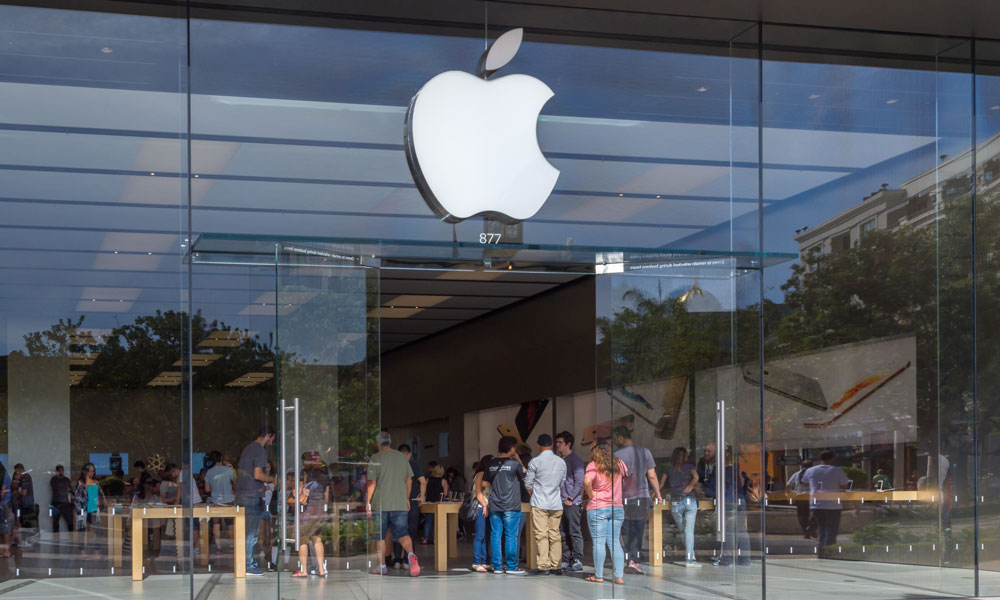
Apple Gains Support in FBI Fight Over Encryption
Technology and privacy advocates largely sided with Apple in the wake of a court order involving an iPhone owned by a San Bernardino terror suspect. However, at least one group affiliated with the FBI says that Apple's encryption and policy stance create a national security risk.
One of the world’s largest companies is in major legal conflict with the FBI, and associations and advocacy groups across the spectrum are quickly picking sides.
Early Wednesday, Apple CEO Tim Cook released a letter to customers outlining its opposition to a court order that compels the company to help unlock the iPhone of San Bernardino, California, shooter Syed Rizwan Farook.
Currently users can set up their iPhones to erase all data if a wrong password is used 10 consecutive times. The FBI wants Apple to create a workaround for that setting.
Concerned about far-reaching implications for Apple’s encryption software and user security, Cook balked. And the company said it will fight the court order, arguing that it would undermine the company’s “decades of security advancements.”
“The same engineers who built strong encryption into the iPhone to protect our users would, ironically, be ordered to weaken those protections and make our users less safe,” Cook wrote in the letter.
Advocates Support Apple, Protests Planned
Cook found wide support for his stance among the tech and privacy worlds, with Google CEO Sundar Pichai calling the demand for a backdoor to the iPhone’s security function “a troubling precedent”.
And many tech groups were quick to speak up. On Wednesday, the Electronic Frontier Foundation quickly threw its support behind Apple and Cook, noting that the software Apple is being asked to build could effectively be used for any purpose in the future.
“Essentially, the government is asking Apple to create a master key so that it can open a single phone,” wrote Kurt Opsahl, the EFF’s deputy executive director and general counsel. “And once that master key is created, we’re certain that our government will ask for it again and again, for other phones, and turn this power against any software or device that has the audacity to offer strong security.”
And Fight for the Future, an internet advocacy group that has support from organizations like the Consumer Technology Association, has called for protests of the government’s request on February 23, to take place outside Apple stores around the country.
“Governments have been frothing at the mouth hoping for an opportunity to pressure companies like Apple into building backdoors into their products to enable more sweeping surveillance,” said Fight for the Future’s Campaign Director Evan Greer. “It’s shameful that they’re exploiting the tragedy in San Bernardino to push that agenda.”
On the Other Side
While much of the tech world has been critical of such tactics, at least one law enforcement group claims Apple’s stance flies in the face of security needs.
One notable critic is the FBI Agents Association, whose president, Reynaldo Tariche, criticized Apple for being unwilling to work with the FBI in a terrorism case.
“Judge Pym’s order and Apple CEO Tim Cook’s resistance to allowing FBI access to a terrorist’s iPhone is a stark example of the risks to national security posed by encryption technologies,” Tariche said in a news release. “It is critical for public safety that technology companies cooperate with law enforcement.”
Tariche said the association has been working to educate policymakers about the importance of technological solutions to counterterrorism efforts, but he added that technology companies are “spending their lobbying resources on fighting congressional efforts to make it easier for law enforcement to conduct investigations.”
“Technology companies want to use concerns about identity theft to market unlockable devices, devices that allow individuals to communicate across borders with no ability for law enforcement to obtain information—even with a lawful warrant,” Tariche added. “Unfortunately, these marketing efforts, reinforced with intense lobbying of policymakers by the high-tech community, may be providing a safe haven for terrorist and criminal networks.”
The International Association of Chiefs of Police , which hasn’t specifically commented on the Apple situation, has previously argued that it wants encryption backdoors made available in limited circumstances.
“Law enforcement simply needs to be able to lawfully access information that has been duly authorized by a court in the limited circumstances prescribed in specific court orders—information of potentially significant consequence for investigations or serious crimes and terrorism,” IACP wrote in a 2015 report.
At least one tech group has found something of a middle ground on the issue. Daniel Castro, vice president of the Information Technology and Innovation Foundation think tank, told the BBC on Wednesday that, in some cases, “it would be prudent to allow law enforcement to have this access—at least in the short term,” but that “harmful unintended consequences” must be considered.
Apple stores around the country could become protest sites next week. (iStock Editorial/Thinkstock)






Comments